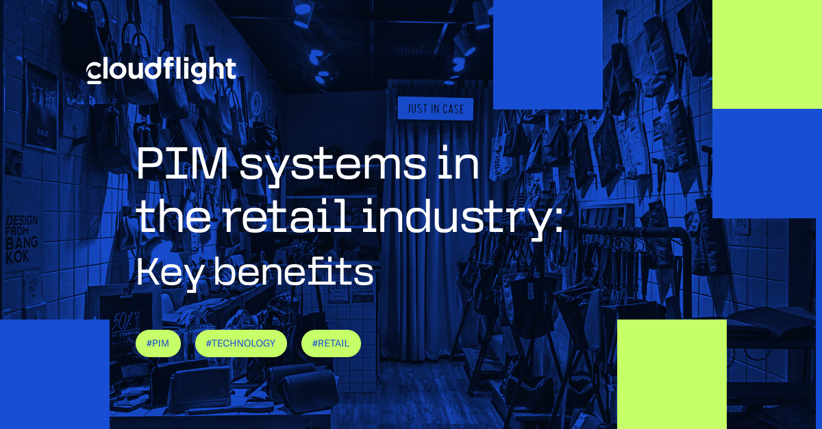In an era marked by the march away from conventional ownership and opting for renting, leasing, and other similar options, the world of retail eCommerce needs to be more flexible than ever before. B2C businesses need to be ready for a large variety of challenges, such as implementing modern financing models and accommodating the ever-growing need for product and experience customization.
It’s an intricate dance to embrace these trends and come up with solutions that harmonize with specific markets. Luckily, modern PIM solutions can be dependable partners. Here are three examples of businesses that successfully leveraged this technology to adapt to the challenging market.
Personalized products and customer experiences
For modern retailers, the ability to deliver personalized customer experiences can become the differentiator between you and your competition. Pimcore empowers you to create personalized catalogs and product specifications tailored to specific customers.
By integrating customer data and preferences, manufacturers can generate custom product recommendations and configure-to-order solutions. This level of personalization can work wonders to improve customer satisfaction and loyalty.
Success story: Corsair
 Corsair builds and sells high-performance PC components to B2C customers. They offer a wide range of products, both internal and peripheral, and have recently expanded into a new field of water cooling systems.
Corsair builds and sells high-performance PC components to B2C customers. They offer a wide range of products, both internal and peripheral, and have recently expanded into a new field of water cooling systems.
Challenge: making sense of personalized component configurations
When you’re building a PC, you need to make sure that all the components that you pick are compatible with one another. For those less tech savvy, it can become quite a challenge. Corsair wanted to make their customers’ lives easier and implement an automatic verification of whether a specific water cooling part would fit with the rest of their components.
Here’s the catch: 930 different motherboards, 188 central processing units (CPUs), 246 cases, and 1249 graphics cards in Corsair’s database add up to more than 20 billion unique configurations and potential conflicts. Obviously, verifying all those configurations would be impossible to do without some automated help.
Solution
Pimcore came to the rescue. With the smart use of advanced categories and attributes, Corsair managed to create a reliable system that automatically verifies compatibility. It’s also capable of suggesting the optimal cooling solution out of over a million possible configurations.
Customization potential in features and performance
Running a specialized boutique store is an idyllic vision, but the harsh reality is that they’re rarely profitable. If you want your eCommerce business to thrive, carrying a larger and more diverse inventory tends to be the safer choice.
This poses a challenge though. Different types of products require different taxonomies and, in some cases, different checkout processes, payment options, and so on. Tying them all together into a single eCommerce platform, which will still make sense for you on the back end and the users on the front end, can be almost impossible without the right tools.
Success story: Bayer 04 Leverkusen
 Bayer 04 Leverkusen is one of the biggest and most recognizable clubs in the German Bundesliga: the top division of football (soccer) league competition. Their eCommerce solution is a catch-all retail store that sells very different kinds of products that range from merchandise to seasonal tickets. This posed a fairly unique set of challenges.
Bayer 04 Leverkusen is one of the biggest and most recognizable clubs in the German Bundesliga: the top division of football (soccer) league competition. Their eCommerce solution is a catch-all retail store that sells very different kinds of products that range from merchandise to seasonal tickets. This posed a fairly unique set of challenges.
Challenge: accommodating a variety of product types
Selling physical products that you send out, such as shirts, mugs, and other kinds of merchandise, is very different from selling tickets. You need different types of attributes, customer data, and, most importantly, different inventory and pricing modules. It’s not only a question of whether you have a ticket available or not. Factors such as sector and seat selection, various pricing and discount tiers, and pre-sale for registered fan club members also come into play. For Bayer, both types of sales had to be integrated into a single seamless store solution.
The question of performance scalability was also a tough nut to crack. The infrastructure had to be able to handle multiple spikes of traffic that happen during the year, such as:
- various rounds of tickets going up for sale.
- the release of merchandise lines for the season.
- spikes of interest in customized shirts caused by the signing of an exciting player.
Solution
Bayer chose Pimcore as the backbone of their new eCommerce infrastructure. The open-source nature of the system was one of the deciding factors; it allowed a large degree of customization that was necessary to marry the two different worlds of eCommerce into a single cohesive platform. The PIM solution also proved successful in terms of scaling. It passed its first major test, the release of a limited-run collectible shirt, with flying colors.
Flexibility of payment and financing options
The global economy is gradually moving away from purchasing and ownership in their traditional sense and towards various forms of rental, leasing, and pay-per-use models. This poses a unique challenge for the retail sector. B2C stores must adapt to this trend and develop financing models that make sense in their respective markets.
PIM software can facilitate this process in the eCommerce sphere. The extra attributes and variables that you can set up for each individual product enable you to set up sophisticated payment models for rentals, shared ownership, and so on.
Success story: Intersport Rent
Intersport is one of the leading B2C sports retailers in the world, with over 800 physical stores across Europe and Canada. Apart from traditional purchases, they also offer the option to rent some of their seasonal equipment, most notably skis in the winter season.
Challenge: disjointed eCommerce and physical store systems
Intersport needed to create a centralized rental system that would consolidate all of their regional websites and physical stores. The idea was ambitious: to make it possible for clients to reserve equipment through any supported channel and pick it up at a physical location of their choosing. This proved impossible using the old system because regional retail divisions were set up on different IT architectures and business processes.
Solution
Implementing Pimcore helped Intersport solve this conundrum on two levels. First, by migrating all the back ends to a single platform, they solved the problem of incompatible systems. With all the regional physical stores and eCommerce connected to the same PIM system, they established a single source of truth for all product information. When needed, this data can be easily localized, for example, in terms of translation, currency, or taxonomy.
The second revolution introduced by Pimcore was the ability to set up the rental system itself. The consolidation of the product database meant that all the different physical stores and eCommerce channels communicated with one another in terms of product availability and reservations. On the other hand, Pimcore’s API capabilities made it possible to build a web application that streamlined the process of making reservations.
Taking retail into the modern era with PIM solutions
In the ceaseless tango between consumer preferences and evolving market dynamics, retail eCommerce has no choice but to transform. By adopting innovative solutions like PIM software, businesses can not only adapt but flourish in the era of rental models and personalized experiences.
Just as Intersport Rent, Corsair, and Bayer 04 Leverkusen have carved their success stories, there's an entire retail universe ready to explore the limitless potential of these technologies. The list of benefits goes on, and this article is only meant to give you a taste of the key ones. We've recently released an eBook that goes over more applications and benefits of PIM software in the retail industry. Make sure to have a look to get a complete picture of what such implementations can accomplish for your business.
Published October 26, 2023












